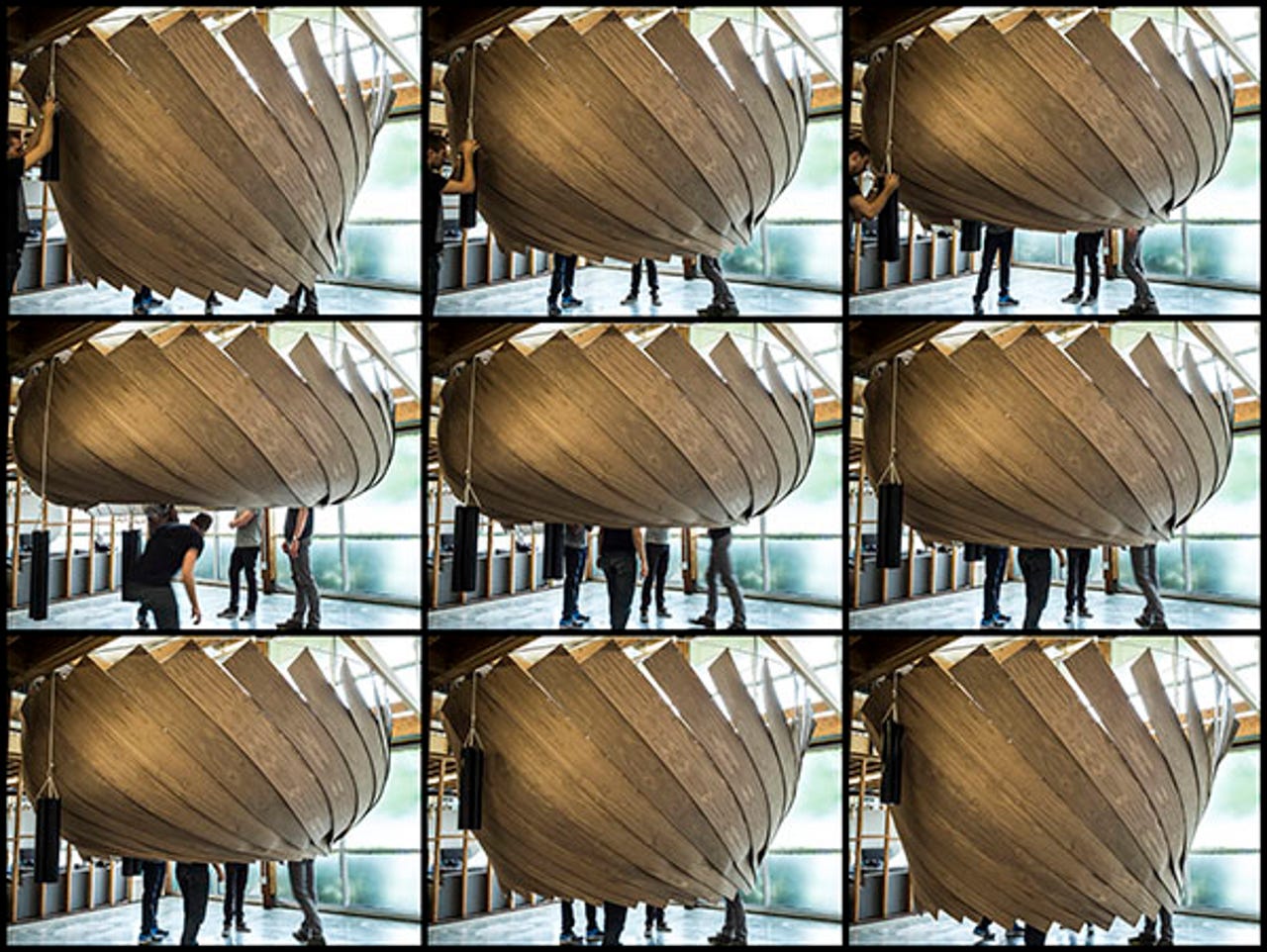MIT, Google have just dreamt up the drop-down meeting cubicle


Transformable Meeting Spaces could be the answer to the tyranny of the open-plan office.
Once all the rage, the open-plan office appears to have fallen out of favor in recent times, with studies showing they contribute to a higher number of sick days and decreased productivity due to constant disruptions.
According to a Bloomberg report last year, staff at some open-plan offices have resorted to using red and green cups to signal whether they can or cannot be disturbed.
On the other hand, the open-office concept has been zealously embraced in Silicon Valley to support greater collaboration, which can boost productivity as long as the endless interruptions don't have the opposite effect.
With this goal in mind, MIT's Self-Assembly Lab, in partnership with Google, has come up with an answer that lets an office retain its open design but also incorporates temporary private spaces. Appealingly, the solution, a retractable shell fixed to the ceiling, doesn't require any expensive or complex electromechanical systems.
The Self-Assembly Lab calls the system Transformable Meeting Spaces. As FastCompany reports, the retractable shell is constructed from 36 fiberglass rods that are woven together to form a movable skeleton.
A counterweight placed at the centre of the dropdown structure can be gently pulled down to form a 10ft-wide and 8ft-tall enclosure that fits six to eight people. A felt lining on the inside of the rods also muffles noise from outside. Once a meeting has wrapped up, the walls can simply be pushed up like a curtain, returning the office to its usual open-plan form.
The meeting spaces concept was hatched after a conversation between Self-Assembly Labs co-director Skylar Tibbits and Drew Wenzel, a civil and environmental engineer from Google's campus development team, according to FastCompany.
It's not clear whether Google provided any funding for the project and the company hasn't actually installed one of the pods in any of its offices.
However, the tech giant is helping the lab research materials and real-world applications for the technique. It is also interested in how the lab's experiments could help add flexibility to existing office space, of which it has plenty across 70 offices in over 40 countries, and quirky furniture that could mesh well the contraption.
Transformable Meeting Space from Self-Assembly Lab, MIT on Vimeo.
MORE ON GOOGLE
- Indonesia to chase Google for unpaid taxes: Report
- Google acquires location-based analytics firm Urban Engines
- Squished Gmail, Inbox messages? Google readies prettier-looking email for mobile
- Google's DeepMind claims major milestone in making machines talk like humans
- Google Chrome starts blocking Flash tracking for better battery life and performance
- TechRepublic: Five types of browser extensions every professional should have
- CNET: Google's Android Nougat is finally here for your Nexus phone and tablet